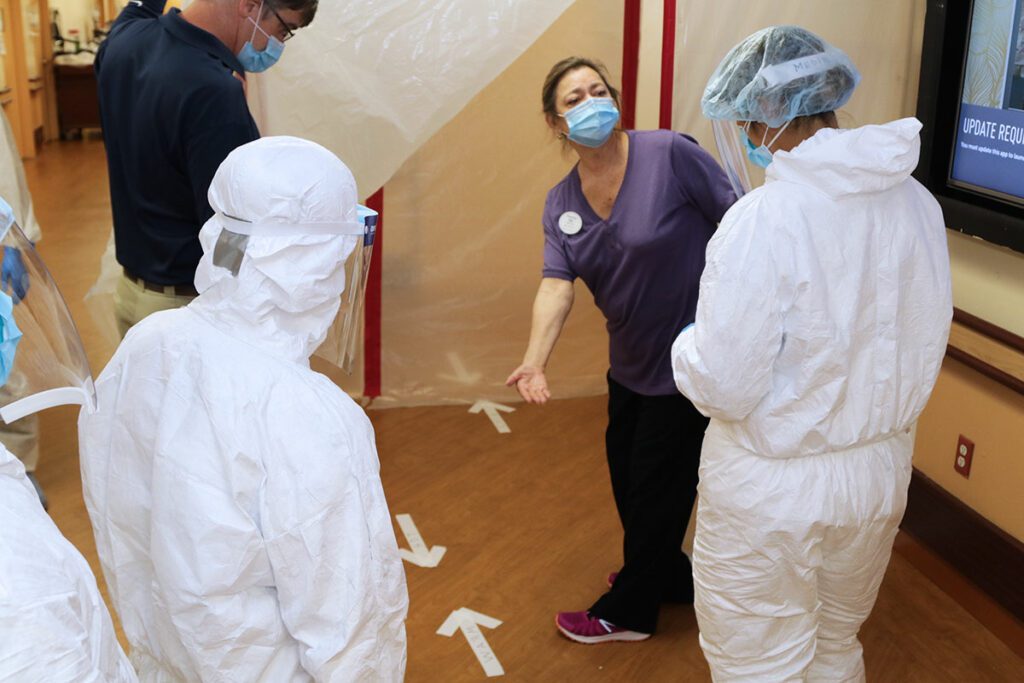Following identification of two COVID-19 cases in a Seattle independent and assisted living facility, stringent preventive measures were implemented. Testing of all residents and staff members found few cases of COVID-19. Three of four residents who had positive test results were asymptomatic.
Possible explanations for so few cases of COVID-19 in this residential community compared with those in several Seattle skilled nursing facilities with high morbidity and mortality include more social distancing among residents and less contact with health care providers. In addition, early implementation of stringent isolation and protective measures after identification of two COVID-19 cases might have been effective in minimizing spread of the virus in this type of setting.
When investigating a potential outbreak of COVID-19 in senior independent and assisted living communities, symptom screening is unlikely to be sufficient to identify all persons infected with SARS-CoV-2. Adherence to CDC guidance to prevent COVID-19 transmission in senior independent and assisted living communities could be instrumental in preventing a facility outbreak.
The findings in this report are subject to at least one limitation. Symptom reports by residents and staff members might have been subject to recall bias, given the general anxiety about COVID-19 in response to the identification of the two initial COVID-19 cases. Nonetheless, the high percentage of both residents and staff members who had negative test results for SARS-CoV-2, yet reported symptoms, illustrates the limitations associated with COVID-19 case identification strategies determined by presence of symptoms alone. The findings from this investigation underscore the importance of SARS-CoV-2 mitigation measures, including social distancing, visitor restriction, resident and staff member testing, exclusion of ill staff members, and enhanced disinfection and hygiene practices.
READ MORE:
Detection of SARS-CoV-2 Among Residents and Staff Members of an Independent and Assisted Living Community for Older Adults — Seattle, Washington, 2020 Morbidity and Mortality Weekly Report (MMWR). 3 April 2020.



